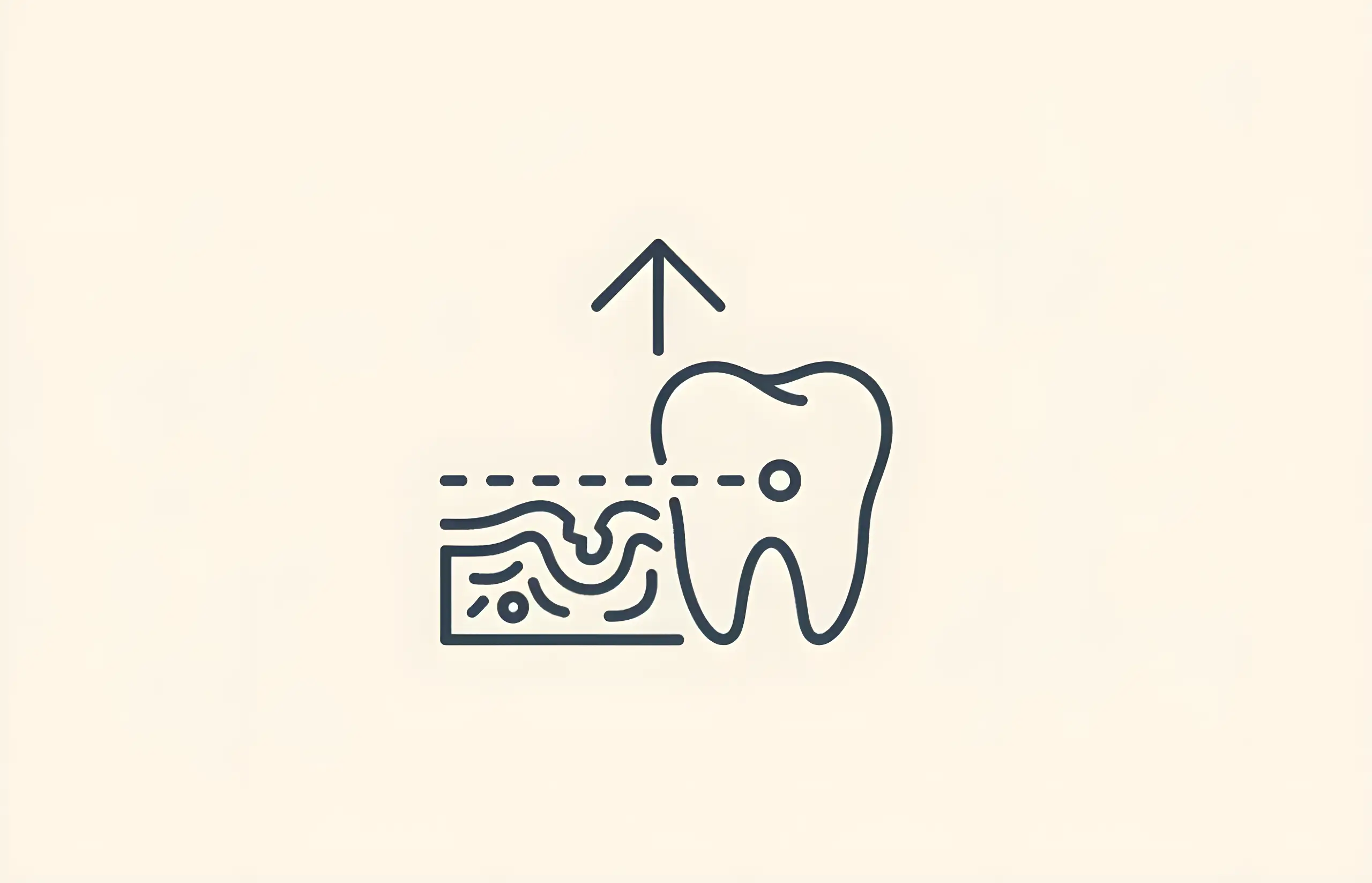Full mouth dental implants represent a comprehensive solution for patients who have lost most or all of their teeth. This advanced dental rehabilitation procedure uses 4-8 strategically placed implants per arch to support a complete set of fixed prosthetic teeth, restoring function, aesthetics, and confidence.
What Are Full Mouth Dental Implants?
Full mouth dental implants are a permanent tooth replacement solution for patients who are edentulous (completely toothless) or have severely compromised teeth requiring extraction. Rather than replacing each tooth individually, full arch restoration uses 4-8 dental implants per jaw to support a complete fixed bridge of prosthetic teeth.
Common full mouth implant approaches include:
- All-on-4: Four implants per arch supporting a full bridge (most cost-effective)
- All-on-6: Six implants per arch for greater stability and load distribution
- All-on-8: Eight implants for maximum support in complex cases
These implants are surgically placed into the jawbone and, through a process called osseointegration, fuse with the bone over approximately 12 weeks to create a permanent foundation for your new teeth.
The Full Mouth Dental Implant Procedure
Initial Consultation and Planning
Your dentist will conduct a comprehensive examination including:
- 3D CT scans to assess bone quality and quantity
- Digital impressions for precise planning
- Assessment of your bite, jaw relationship, and facial aesthetics
- Discussion of your expectations and desired outcomes
- Review of medical history and suitability for surgery
A detailed treatment plan will be created, often using computer-guided surgery planning for optimal implant placement.
Preparation and Mockups
Before surgery, your dental team may create a mockup or "trial smile" to preview your final results. This allows you to see the planned shape, size, and positioning of your new teeth and make adjustments before proceeding.
If extractions are needed, these may be performed during the implant surgery or beforehand, depending on your specific case.
The Surgical Procedure
Full mouth dental implant surgery typically takes 2-4 hours and is performed under sedation or general anaesthetic:
- Preparation: The surgical sites are prepared, and any remaining teeth requiring extraction are removed
- Implant placement: Four to eight titanium implants are strategically positioned in areas of strongest bone
- Bone grafting (if needed): Additional bone material may be placed to ensure adequate support
- Temporary prosthesis: In many cases, a temporary set of fixed teeth can be attached the same day (immediate loading)
The posterior implants are often angled to avoid anatomical structures like sinuses and to maximize bone contact without requiring extensive grafting.
Osseointegration and Healing
Following surgery, the critical osseointegration process begins. Research shows this follows predictable phases:
- First 24-48 hours: Blood clot formation and initial inflammatory response
- Weeks 1-2: Soft tissue healing and granulation tissue formation
- Weeks 3-4: Woven bone begins forming around implant surface
- Weeks 5-12: Mature lamellar bone develops, completing osseointegration
Complete osseointegration typically takes 12 weeks, though healing continues to strengthen over several months. During this period, you'll wear temporary prosthetic teeth that allow you to eat, speak, and smile normally while protecting the healing implants.
Final Prosthesis
Once osseointegration is complete (usually 3-6 months post-surgery), your final permanent prosthesis is created and fitted. This custom-designed bridge is crafted from high-quality materials such as:
- Porcelain fused to metal
- Zirconia (extremely strong and natural-looking)
- Hybrid acrylic-composite materials
The final prosthesis is precision-fitted and secured to the implants, providing a permanent, natural-looking, and fully functional set of teeth.
Post-Procedure Care and Recovery
Immediate Recovery (First 2 Weeks)
You can expect:
- Swelling and bruising (peaks around days 2-3, subsides within 2 weeks)
- Mild to moderate discomfort (manageable with prescribed pain medication)
- Some bleeding or oozing for the first 24-48 hours
- Dietary restrictions (soft foods only)
Most patients return to work and normal activities within 3-7 days, though individual recovery varies.
Dietary Restrictions
During the healing phase:
- First 2 weeks: Soft foods only (soups, smoothies, mashed potatoes, eggs, yogurt)
- Weeks 3-6: Gradually introduce semi-soft foods
- Weeks 7-12: Expand diet as comfort allows, avoiding very hard foods
- After final prosthesis: Eat normally, avoiding exceptionally hard items like ice, hard candies, and bones
Long-Term Care
To maximise the longevity of your full mouth implants:
- Brush twice daily with a soft-bristled toothbrush
- Use interdental brushes or water flossers to clean around implants
- Attend regular dental check-ups (every 3-6 months)
- Avoid smoking (significantly impacts implant survival)
- Manage teeth grinding with a night guard if necessary
- Report any concerns (looseness, discomfort, bleeding) promptly
Success Rates and Outcomes
Full mouth dental implants have excellent success rates:
- Short-term survival: 92-97.2% for full arch restorations
- 20-year survival: 78-92% depending on maintenance and patient factors
- Immediate loading: 98-99.7% survival when protocols are properly followed
Quality of Life Improvements
Research consistently shows that patients experience significant improvements in:
- Chewing ability and dietary choices
- Speech clarity
- Facial aesthetics and appearance of reduced ageing
- Social confidence and willingness to smile
- Overall quality of life compared to dentures
Patient-reported outcome studies show no significant differences in satisfaction between fixed and removable implant-supported prostheses, though both dramatically outperform conventional dentures.
Complications and Risks
While full mouth dental implants are highly successful, potential complications include:
- Infection (2-5% of cases): Requires antibiotics and may necessitate implant removal
- Implant failure: 3-8% within the first year, often due to failed osseointegration
- Nerve damage: Rare but can cause temporary or permanent numbness
- Sinus complications: Possible with upper jaw implants if sinus membrane is perforated
- Prosthetic issues: Loose screws, chipping, or fractures requiring repair
Risk factors that reduce success rates include smoking, uncontrolled diabetes, poor oral hygiene, and inadequate bone quality. Your dentist will assess these factors and may recommend preparatory treatments or lifestyle modifications before proceeding.
Costs in the UK
Full mouth dental implants represent a significant investment:
- All-on-4 (per arch): £10,000-£16,000
- All-on-6 (per arch): £15,000-£25,000
- Complex cases with grafting: £30,000-£68,000 (both arches)
Costs vary based on:
- Number of implants required
- Need for bone grafting or extractions
- Type of prosthetic materials
- Location and expertise of the practice
- Whether sedation or general anaesthetic is used
Payment Options
Most dental practices offer:
- Payment plans with monthly instalments
- 0% interest finance (subject to credit approval)
- Dental insurance (some policies provide partial coverage)
Full mouth dental implants are rarely available on the NHS except in cases of trauma, cancer treatment, or congenital conditions. Private treatment is typically required.
Alternatives to Full Mouth Dental Implants
If full mouth implants aren't suitable or affordable, alternatives include:
- Conventional dentures: £500-£2,500 (removable, less stable)
- Implant-retained overdentures: £5,000-£15,000 (removable but more stable, requires 2-4 implants)
- Dental bridges: For partially edentulous patients
However, fixed full mouth implants typically provide superior function, comfort, and longevity compared to removable alternatives.
Is Full Mouth Dental Implant Treatment Right for You?
Full mouth dental implants may be ideal if you:
- Have lost most or all of your teeth
- Have adequate bone quality and quantity (or are suitable for bone grafting)
- Are in good general health
- Want a permanent, fixed solution
- Are committed to excellent oral hygiene and regular dental visits
- Can manage the upfront cost or access suitable finance
Who Should Avoid Full Mouth Implants?
Full mouth implants may not be suitable if you have:
- Active gum disease (requires treatment first)
- Severe osteoporosis or insufficient bone
- Uncontrolled diabetes or other systemic health issues
- Heavy smoking habits (cessation strongly recommended)
- Recent head/neck radiation therapy
Discuss your individual circumstances with a qualified implant dentist to determine the best treatment approach for your needs.
Summary
Full mouth dental implants offer a life-changing solution for patients with extensive tooth loss. With success rates exceeding 90% and the ability to restore near-normal chewing function and aesthetics, this treatment represents the gold standard for full arch rehabilitation.
The 12-week osseointegration period is critical for long-term success, and proper care and maintenance are essential for maximising the 20-year survival rates of 78-92% demonstrated in clinical research. While the initial investment is substantial (£10,000-£68,000), the improvements in quality of life, confidence, and oral function make full mouth dental implants a worthwhile consideration for many patients.
Consult with an experienced implant dentist to explore whether full mouth dental implants are the right solution for your dental rehabilitation needs.
Sources and References
-
[1]
Patient-reported outcome measures for edentulous patients treated with implant-supported prostheses in systematic reviews: A systematic reviewClinical Oral Implants Researchhttps://pubmed.ncbi.nlm.nih.gov/29968326/
-
[2]
Osseointegration of Dental Implants: A Current Methodological ReviewBioMed Research Internationalhttps://pubmed.ncbi.nlm.nih.gov/35770235/
-
[3]
Patient-reported quality of life and general health in the first 3 months after placement of early loaded single-tooth implants vs. conventional dental treatmentClinical Oral Implants Researchhttps://pubmed.ncbi.nlm.nih.gov/24313691/
-
[4]
Long-term survival of implants and prostheses: A systematic review with meta-analysisJournal of Dentistryhttps://pubmed.ncbi.nlm.nih.gov/30687926/
All sources accessed and verified on . Medical information reviewed for accuracy and compliance with current guidelines.
Related Articles

Can You Have Dental Implants With Gum Disease?
Complete guide to dental implants and gum disease including symptoms of periodontitis, success rates with treated gum disease, and treatment requirements before implant surgery

Dental Bridges – Costs and Information
Complete guide to dental bridges including types (traditional, Maryland, cantilever), survival rates, procedure details, costs in the UK, and comparison with dental implants

Dental Implant Costs In The UK – Single Tooth and Full Mouth
Complete guide to dental implant costs, financing options, success rates, and what to expect from single tooth to full mouth implant treatments in the UK

Dentures – Costs & Information
Comprehensive guide to denture types, costs, quality of life outcomes, complications, and choosing between conventional dentures and implant-supported options

Can You Get Snap On Teeth You Can Eat With?
Complete guide to snap-on teeth including what they are, how they work, eating with them, care instructions, and alternatives for permanent solutions
About The Dental Guide
The Dental Guide is a trusted online resource providing evidence-based information about dental health, treatments, and procedures. Our content is created and reviewed by qualified dental professionals to help you make informed decisions about your oral health.
Our Mission
- Evidence-based dental information
- Expert-reviewed content
- Clear, accessible explanations
- Latest treatment options
- Patient-focused guidance
Editorial Standards
- GDC-registered dental professionals
- Peer-reviewed sources
- Regular content updates
- Medical accuracy verification
- Transparent authorship
Important Notice
The information on The Dental Guide is for educational purposes only and should not replace professional dental advice. Always consult with a qualified dentist for diagnosis and treatment recommendations tailored to your individual needs and circumstances.
Medically Reviewed
Reviewed by Dr. Nasim Mechoui , BDS (Bristol)
Share this article
Comments & Discussion
Have questions about dental implants? Share your thoughts or experiences.
